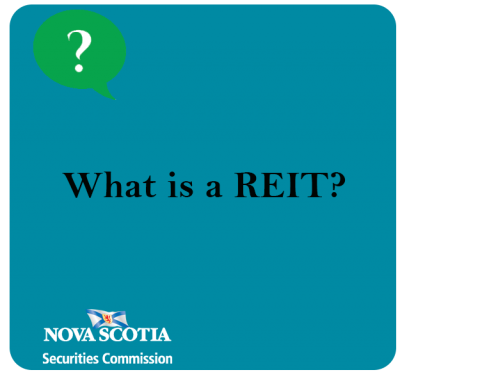Submitted by nsscadmin on

A Real Estate Investment Trust (REIT) is an investment vehicle that invests predominantly in income-producing real estate. This income-producing real estate can include offices and apartments, warehouses, shopping centres, hotels and parking garages. REITs may be publicly traded or private trust relying on a prospectus exemption.
REITs have been around since the 1960s, but were established in Canada in 1993. A REIT must be configured as a trust and they receive certain tax benefits as long as they distribute net taxable income to shareholders. We’ll explain this more when we go into distributions.
REITs generally fall into one of three categories. Equity REITs, Mortgage REITs or Hybrid REITs. An equity REIT, which is the most common, are REITs that acquire equity interests in real property. A mortgage REIT will only acquire mortgage interests in real property. A Hybrid REIT is uncommon and is a combination of equity and mortgage interests.
Publicly trade REITs are listed on the stock exchange, such as the TSX or TSX Venture, and anyone can buy shares in a publicly traded REIT. To qualify as a REIT and receive the tax benefits that come along with it, a REIT must distribute at least 90 per cent of its taxable income to its shareholders each year. Anyone that invests in a REIT is included in this distribution which is typically done monthly or quarterly.
REITs may already own specific real estate or propose to purchase specific real estate. Investors should review the offering materials to understand the types of real estate owned or being acquired. Each type of real estate carries different risks such as interest rate, rent/vacancies and valuation.
As noted above, REITs are required to distribute 90 percent of its taxable income to unit holders. Investors should understand how the REIT fund payouts to investors such as funds from operations of through debt financing.
